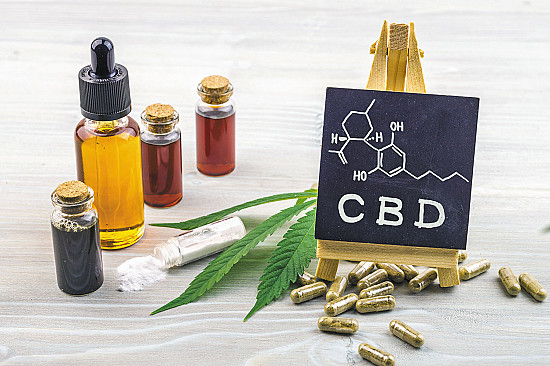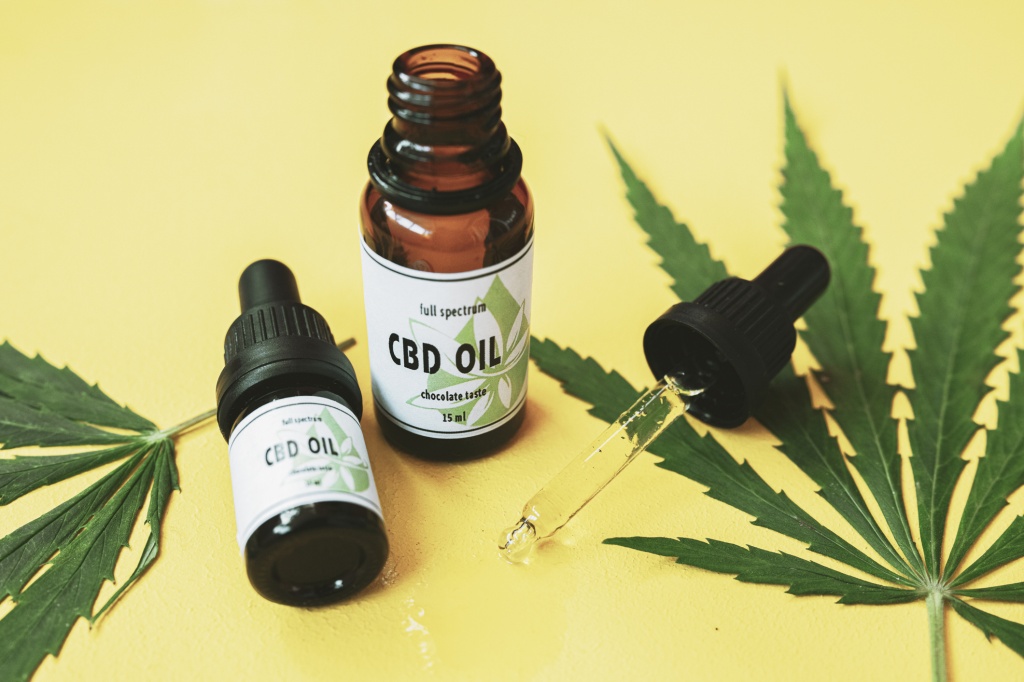
If you've ever visited a CBD shop, you know that the products are not sourced from cannabis, but rather from hemp, a non-psychoactive ingredient of marijuana. It's often sold in CBD shops as it's used medicinally, particularly in the treatment of anxiety and depression. You might wonder where to find this product, since physical stores don't have enough shelf space for all the different CBD products. Here are some ways to find the best products that meet your needs.
CBD is a nonpsychoactive ingredient of cannabis.
Cannabis is a naturally occurring plant. It contains many compounds that are beneficial for the human body. The primary psychoactive component of cannabis is tetrahydrocannabinol, or THC. There is also CBD. The non-psychoactive components of cannabis have been shown to have many medical benefits. They include the relief of pain and anxiety for patients with schizophrenia and psychosis. Additionally, CBD's anti-inflammatory properties are useful for treating acne and arthritis.

It's not a recreational drug
CBD is not a marijuana recreational drug. Historically, hemp plants have been used for medicinal purposes throughout the world. In 1970, marijuana was designated a Schedule I drug. Federal funding is not available to study it. Dr. Mitrani, a pediatrician, is familiar with cannabis and suggests waiting to see if further research can be done before giving it children.
It's used in the treatment of anxiety and depression
A study by scientists from Katowice's Medical University of Silesia, Poland was done to find out if CBD shops are effective in treating depression and anxiety. Respondents were surveyed using validated depression diagnostic tools. Only two of the respondents reported negative effects of CBD, including diarrhea and xerostomia. Even though only a small number of participants used psychotropic drugs to treat depression, these responses indicate that the public doesn't understand the true nature of depression and that there are no medical solutions.
It's sold in cbd shops
The popularity of CBD products has prompted the rise in wellness and health stores. According to National Retail Federation, 70% made a purchase in response to social distancing or quarantining. In addition to alcohol, CBD products were also top-three purchases. Brightfield Group conducted another survey and found that 49% made purchases because they were concerned about a potential pandemic or health crisis.
It can be difficult to find a trustworthy supplier
To open a CBD shop you will need to find a trustworthy supplier of CBD hemp. Not all suppliers can provide you with the highest quality hemp oil. You should also verify their THC-to-CBD ratio. High-quality breeders will cultivate CBD-rich hemp varieties to meet your needs. It is vital to ensure that your supplier has a valid license. Because the material must be grown only by licensed farmers, Also, make sure you verify that the supplier in your state is licensed.

It isn't easy to navigate
If you're new to the CBD world, it can be difficult to know where to begin. It is common to refer to cannabis and hemp interchangeably. This can lead consumers to be confused. It can be difficult to find the right information online. Because of this, it's difficult to navigate CBD shops, which is why it's important to design your store with a user journey in mind. First, make sure product categories accurately reflect the benefits each product offers. Next, arrange them according to their consumption methods and cannabinoid contents. Last but not least, do not make health claims.
FAQ
Is CBD's market saturated?
CBD industry is growing at over 25% per annum. This growth is expected not to stop for at least five more years. According to industry projections, it will grow from $2 billion to $5 billion by 2020.
Canndoc Ltd and GW Pharmaceuticals are the dominant players in the CBD market. Both companies have a focus on creating pharmaceutical-grade products. They haven't been very successful so far. They are both struggling to gain traction in the marketplace.
Cannabidiol, or CBD (cannabidiol) is a cannabis extract that contains less 0.3% THC. It does not produce any psychoactive effects. It is used to treat epilepsy and other conditions. It can also be used as a dietary supplement.
There are many types of CBD products. Some CBD products contain whole plant extracts. Others use CBD-rich cannabinoids.
These products share one common feature: they all contain low levels of THC.
They are thus legal under US federal legislation. However, this doesn't mean that you don't need to follow local laws when selling CBD products. Check with your state regarding the sale of CBD products.
Additionally, CBD products in some states are illegal. These include California, Colorado, Florida, Mississippi, Missouri, New York, North Carolina, Ohio, Oklahoma, Oregon, Pennsylvania, Rhode Island, South Dakota, Texas, Utah, Virginia, Washington, and Wisconsin.
You will want to stay clear of CBD products if you are from one of these states.
What are the best CBD brands available?
These top CBD brands have been hand-picked by us based on their quality, reliability, value, and other criteria.
They sell high-quality CBD oil products with less than 0.2% THC.
We also recommend checking out our list of the best CBD sellers worldwide.
Does CBD have a future?
Yes. But not because of its medical benefits but rather due to its ability to help people feel better without getting high.
It is a great alternative to prescription drugs because it doesn't make your feel different.
And as we know from studies, there is a lot of evidence showing that cannabis helps with pain relief, anxiety, depression, insomnia, and many other conditions.
Cannabinoids in cannabis interact with our brains. This interaction can produce feelings of relaxation, well-being, and even a sense of well-being.
It is essential to learn about CBD oil and its effects if you want to use it for health reasons.
Is CBD a good place to invest?
As more people are aware of the many benefits of hemp-based products and their market, it continues to grow. The market for hemp-based products could reach $1 billion by 2022, according to estimates.
The market is expected to continue growing at over 20% per year until 2020 when it reaches $2.5billion.
Hemp oil can be found in many beauty and health products, including lotions, shampoos and lip balms, moisturizers and body butters.
There are also several companies producing CBD-infused beverages, snacks, pet foods, dog treats, and other food items.
CBD is currently legal across all 50 states. But, this may change in the near future. As more research is conducted into the potential uses of CBD, more laws will likely be passed, making it easier for businesses to operate legally.
These are just a few of the many reasons CBD investment can be lucrative.
Statistics
- HR −16 mmHg; 95% CI −26, −6; I2 = 92%) (ncbi.nlm.nih.gov)
- While the primary injury may not be treatable, interventions that attenuate secondary sequelae are likely to be of benefit [203].Only one study (ncbi.nlm.nih.gov)
- A recent systematic review of human trials also reported that individuals with epilepsy receiving CBD (5–20 mg·kg−1·day−1) were more likely to experience decreased appetite than those receiving placebo (i.e., ~20 vs. 5% of patients) (ncbi.nlm.nih.gov)
- The inhibition of FAAH is predicted to lead to an increase in brain and plasma concentrations of AEA, which acts as a partial agonist at CB1R and CB2R, thereby increasing endocannabinoid tone [92, 110]. (ncbi.nlm.nih.gov)
- OralWhere HED is the human equivalent dose, and Km is a correction factor estimated by dividing the average body mass (BM) of the species (60, 0.020, and 0.150 kg for 11 humans, mice, and rats, respectively) and by its surface area (see: Nair et al. (ncbi.nlm.nih.gov)
External Links
How To
What are the major issues facing the CBD industry in general?
The market for CBD is growing at an astonishing rate. But, businesses who want to enter this market still face numerous challenges. These include low consumer awareness, high entry costs, limited capital access, regulatory uncertainty, and lack of consumer awareness.
Many consumers do not know what CBD is or how it works. This makes it difficult for consumers to make informed decisions on whether or not they want CBD products.
CBD companies are heavily dependent on word-of–mouth marketing. This is costly because they have to pay for advertising and hire staff to promote their brand.
High production costs are another problem facing new entrants in the CBD industry. High prices are a major problem for CBD products because of the high cost of raw materials. To make CBD oil, hemp must be grown in certain climates and soil types.
To grow enough hemp for CBD oil production, it costs approximately $1,000 per acre. Many small farmers are unable or unwilling to invest in this product.
The lack of capital access is another obstacle new entrants to the CBD market face. Banks discourage many people from starting a business because of the stigma attached to this industry.
The sale of CBD products is still subject to regulatory uncertainty. There are no established guidelines regarding the marketing of CBD products.
Despite some states having passed laws restricting the sale CBD products, this is not yet a national policy.
Only Nevada and Maine have so far legalized recreational marijuana.
Massachusetts and Michigan, however, are exploring similar options.
These changes could lead to increased competition between CBD manufacturers.
These factors have led many entrepreneurs to choose to work remotely rather than starting a physical business.